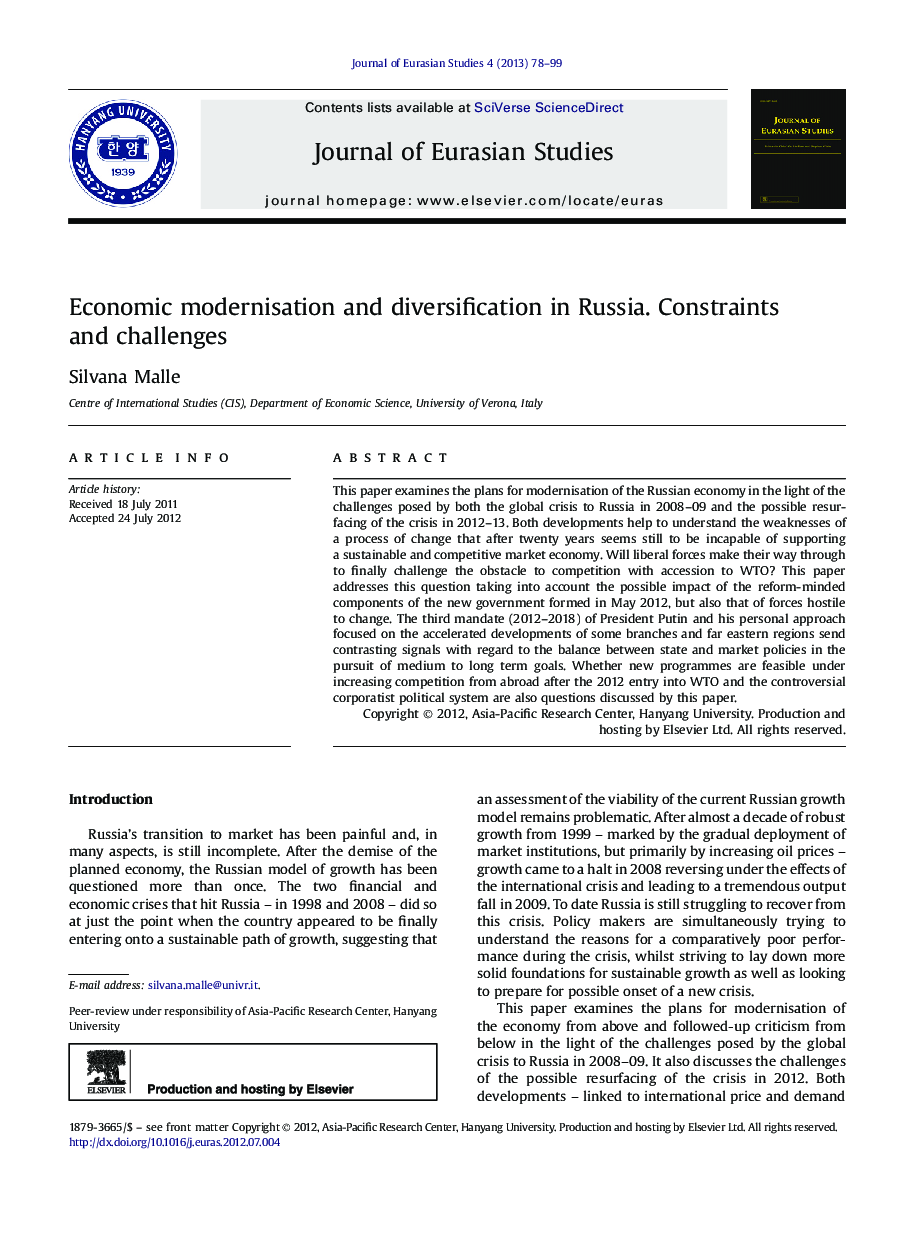| Article ID | Journal | Published Year | Pages | File Type |
|---|---|---|---|---|
| 1127277 | Journal of Eurasian Studies | 2013 | 22 Pages |
This paper examines the plans for modernisation of the Russian economy in the light of the challenges posed by both the global crisis to Russia in 2008–09 and the possible resurfacing of the crisis in 2012–13. Both developments help to understand the weaknesses of a process of change that after twenty years seems still to be incapable of supporting a sustainable and competitive market economy. Will liberal forces make their way through to finally challenge the obstacle to competition with accession to WTO? This paper addresses this question taking into account the possible impact of the reform-minded components of the new government formed in May 2012, but also that of forces hostile to change. The third mandate (2012–2018) of President Putin and his personal approach focused on the accelerated developments of some branches and far eastern regions send contrasting signals with regard to the balance between state and market policies in the pursuit of medium to long term goals. Whether new programmes are feasible under increasing competition from abroad after the 2012 entry into WTO and the controversial corporatist political system are also questions discussed by this paper.
